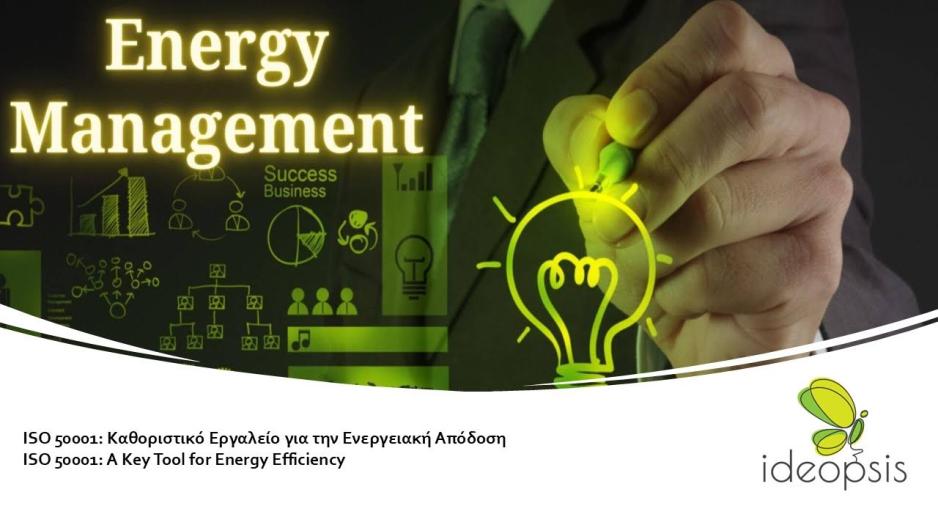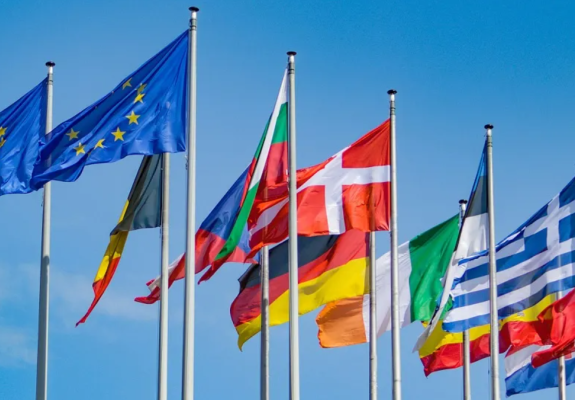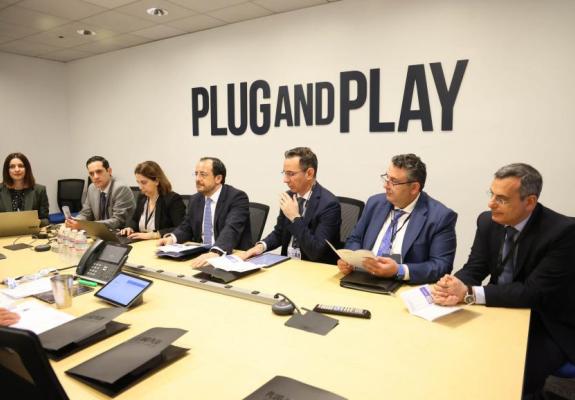ISO 50001: A Key Tool for Energy Efficiency and Sustainable Development
By George Moulazimis, Chemical Engineer, Ideopsis ltd.
In an era where energy efficiency is emerging as a global imperative—for combating climate change, enhancing energy security, and reducing energy costs—the international standard ISO 50001:2018 plays a crucial role. The implementation of this standard enables organizations of all sizes and sectors to systematically and efficiently manage their energy consumption, contributing to the achievement of national and European sustainability targets.
The recent revision of the European Union Energy Efficiency Directive (Directive (EU) 2023/1791) reinforces the importance of ISO 50001 as a compliance tool, aligning the regulatory framework with the increased demands for energy savings and greenhouse gas emission reductions. The focus now extends beyond large enterprises to encompass a broader range of organizations, for whom the adoption of an Energy Management System may represent both a legal obligation and a strategic choice.
Specifically, Member States are required to ensure that companies with an average annual final energy consumption exceeding 85 TJ (approximately 23,611 MWh) over the previous three years implement a certified Energy Management System by 11 October 2027, in accordance with relevant European or international standards. From 2030 onwards, this threshold will be lowered to 50 TJ (approximately 13,889 MWh).
Additionally, companies with an average annual final energy consumption above 10 TJ (approximately 2,778 MWh) that do not implement an Energy Management System are required to conduct energy audits at least once every four years. These energy audits must be performed by licensed energy auditors and must lead to the preparation of specific and feasible action plans for the implementation of the recommendations. Such action plans must be disclosed in the company's annual report, in compliance with Union and national laws regarding trade and business confidentiality.
ISO 50001 is a management standard based on the Plan-Do-Check-Act (PDCA) cycle, setting out the requirements for developing, implementing, and maintaining an effective Energy Management System. Through this approach, organizations can analyse their energy use and consumption, set realistic and measurable savings targets, implement targeted improvement actions, and monitor, evaluate, and adjust their energy performance with the goal of continuous progress.
The implementation of ISO 50001 leads to reduced energy costs, enhanced environmental responsibility, and, most importantly, full compliance with European and national legislation.
Furthermore, it acts as a lever for improving internal organization and identifying areas where energy consumption can be reduced without compromising productivity or quality.

Compliance with ISO 50001 is recognized by the European Commission as equivalent to conducting the mandatory energy audits required by the Energy Efficiency Directive. This offers businesses a flexible, long-term compliance solution, reduces operational burdens, and facilitates access to subsidized energy efficiency programs. At the same time, organizations that adopt standards such as ISO 50001 enjoy enhanced credibility and transparency during audits and internal reviews and increase their attractiveness to investors or partners who consider sustainability a key factor.
Beyond compliance, the standard strengthens organizational resilience to energy market fluctuations while fostering a culture of continuous improvement and innovation. The documented approach of ISO 50001 to energy management enhances data-driven decision-making, which is critical for achieving operational excellence.
Cyprus, a country with high energy costs and dependence on imported energy sources, has strong incentives to improve its energy efficiency. Through its National Energy and Climate Plan (NECP), which fully aligns with the EU's 2030 targets, Cyprus commits to contributing appropriately to the EU-wide mandatory energy efficiency improvement target of 11.7% by 2030.
In Cyprus, the adoption of ISO 50001 is steadily progressing, with a growing number of organizations obtaining certification. Although the overall adoption rate remains moderate, interest in the implementation of Energy Management Systems is increasing, particularly in sectors with significant energy consumption. The availability of accredited certification bodies, along with the integration of the standard into national strategies and support schemes, is expected to further enhance the uptake of ISO 50001 in the coming years.
The global recognition of ISO 50001 makes it a powerful asset for organizations seeking international competitiveness and access to markets with high environmental standards. Investments in energy efficiency are no longer merely a matter of regulatory compliance but a strategic advantage in an era of energy and environmental crises. Additionally, in a world where environmental, social, and governance (ESG) criteria are increasingly prioritized, the integration of ISO 50001 contributes positively to an organization's overall sustainability profile.
ISO 50001 is not just a certification; it lays the groundwork for a transformative culture of energy management. For Cyprus and other EU Member States, its adoption serves as a catalyst for fulfilling national obligations under the EU Green Deal and Fit for 55%. For the private sector, it constitutes a strategic investment, delivering measurable and sustainable returns.
The transition to a greener and more competitive economy with energy independence relies on the responsible and efficient use of energy, with ISO 50001 serving as a key tool in achieving this goal.
Directive (EU) 2023/1791. Retrieved from https://eur-lex.europa.eu/eli/dir/2023/1791/oj/eng
Standardization, I. O. (2018). ISO 50001:2018 - Energy management systems — Requirements with guidance for use






